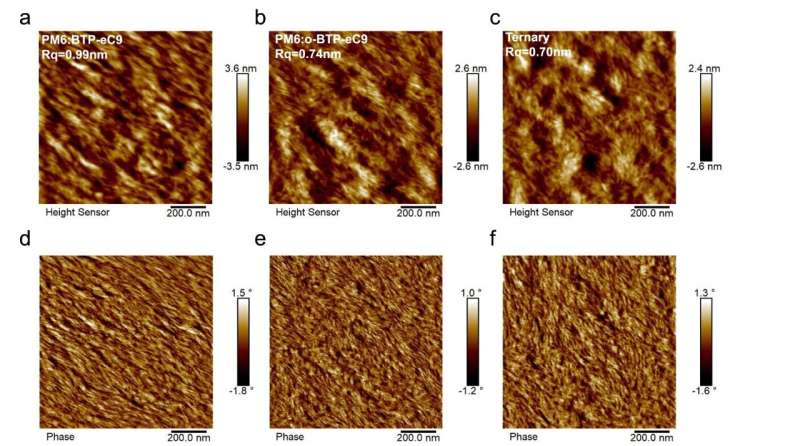
JUNE 21, 2024 by Hong Kong Polytechnic University
Collected at: https://techxplore.com/news/2024-06-scientists-efficiency-solar-cells-molecular.html
To make organic solar cells (OSC) competitive, the light-absorbing molecules should simultaneously satisfy multiple key requirements, including a weak-absorption charge transfer state, a high dielectric constant, suitable surface energy and proper crystallinity.
Scientists at the Hong Kong Polytechnic University (PolyU) have developed a rational design of non-fullerene acceptor (NFA) with distinct photoelectric properties. This innovation has enabled organic solar cells to achieve an efficiency of 19.9%. The team further surpassed 20% efficiency mark beyond the NC work.
This achievement of 20% power conversion efficiency marks a significant milestone in photovoltaics (PV) technology. PV is the process of converting light (photons) to electricity (voltage). While power conversion efficiency is critical for practical applications, it is important to consider other requirements as well.
Prof. Gang Li, Sir Sze-yuen Chung Endowed Professor in Renewable Energy, Chair Professor of Energy Conversion Technology of the Department of Electrical and Electronic Engineering of PolyU, and his research team have designed NFA molecules that provide higher open circuit voltage (Voc) /photovoltage, while maintaining molecular structural compatibility.
The research, titled, “Rational molecular and device design enables organic cells approaching 20% efficiency” was published in Nature Communications.
The NFA was then incorporated into the binary PM6:eC9 OSC to create a ternary system, which successfully achieved higher Voc and power conversion efficiency. This device has uplifted charge transfer state, resulting in significant energy loss reduction and excellent efficiency, miscibility, crystallinity, and energy level compatibility.
This novel design integrates interdisciplinary research in new materials, chemistry, and device engineering. This work paves the way for designing NFA guest molecules for high performance OSCs.
Prof. Li’s research group has focused on three aspects of OSC: efficiency, stability in material and device development, as well as the structure for highly stable OSCs and potential novel applications in transparent solar cells.
More information: Jiehao Fu et al, Rational molecular and device design enables organic solar cells approaching 20% efficiency, Nature Communications (2024). DOI: 10.1038/s41467-024-46022-3
Journal information: Nature Communications

Leave a Reply